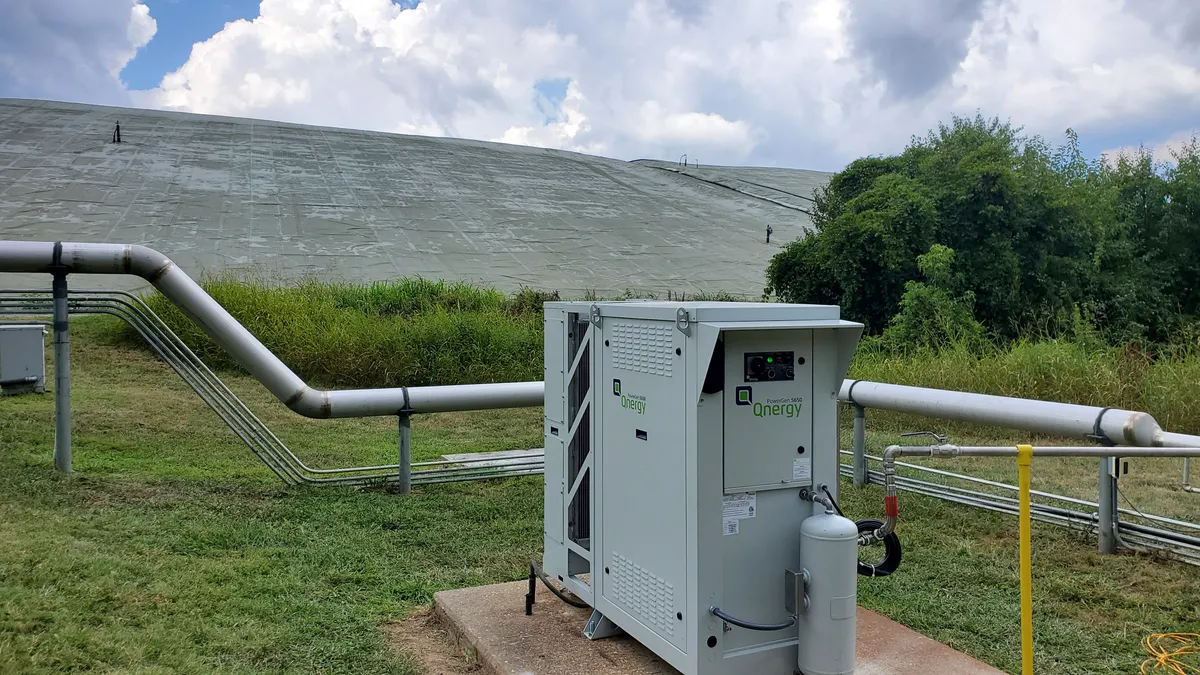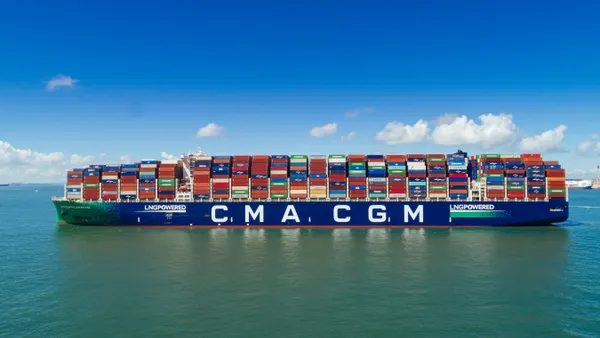Dive Brief:
- Qnergy, a Utah-based methane abatement and energy company, is planning to expand its efforts to convert methane into clean electricity and carbon credits from landfill sites. The rollout stems from a pilot program launched at Weber County last year, company executives and local officials said at a news conference last week.
- The company’s strategy aims to slash Utah’s emission footprint by abating 95% of methane emissions from a closed landfill site near the state’s Weber County Archery Park. The extracted methane will be utilized for carbon credits that will both fund the project and generate revenue for the county and also help protect the state’s environment from super pollutants — gasses far more potent and harmful to the environment than carbon dioxide per ton — per a release.
- Qnergy’s CEO Ory Zik told ESG Dive the company is currently in a “land and expand” phase, with plans to add five additional landfills in northern Utah that are within a short drive of the initial site. The company is also working with waste management companies to introduce this capability nationwide, with rollouts planned next year.
Dive Insight:
Landfills are estimated to be the third largest source of methane emissions in the U.S., per the Environmental Protection Agency’s Inventory of Greenhouse Gas Emissions and Sinks. Methane is considered a super pollutant because its warming power, once emitted to the atmosphere, is about 80 times stronger than carbon dioxide over a 20-year time span, the report said.
“The U.S. has about 10,000 closed landfills … they are still venting methane, so in most cases, they are an environmental and financial liability to the owner,” Zik said. Qnergy, whose technology converts methane to carbon dioxide and electricity, offers Weber County the methane conversion infrastructure free in return for 20% of the revenue from carbon credits.
The initial site for Qnergy’s methane conversion program, a landfill located next to Weber County Archery Park, closed in 1997. Weber County initially intended to turn the closed landfill and methane plant into a park, but found the conversion to be challenging because a large part of the property was unbuildable, Todd Ferrario, Weber County assistant director of culture, parks and recreation, said at the conference.
The county is instead taking an incremental approach to methane conversion that is yielding encouraging results, officials said.
“When we started with the landfill, we only did a little percentage of it, and then it grew bigger and bigger, and now we'll be able to harvest the entire piece of it,” said Weber County Commissioner Jim Harvey. “It took a county that had an old asset that wasn't producing much, partnering with a global leader in this technology to make something now that benefits not just the environment, but benefits the community financially.”
The extraction unit uses Qnergy’s Stirling engine to convert the captured methane into carbon credits and electricity. Qnergy PowerGen, Qnergy’s proprietary technology, is based on a Stirling Engine that converts methane into reliable, utility-grade electricity. A flare enables complete methane destruction, resulting in “clean, dry instrument air” as a byproduct, the company said. The offset emissions are carbon-credit eligible and sold to generate a revenue stream for the county and continue to fund the project.
Qnergy, which also works on oil and gas sites, is looking at wastewater treatment plants and open landfills as future areas to explore for methane conversion efforts, according to Zik.
“For us, it's a win-win. If by law, you have to abate your methane, you need to buy our equipment. If you're not required to eliminate your emissions, we can generate carbon credits,” he said.
In July, the EPA announced it was collecting information about “new technologies” that could be incorporated into updated emissions guidelines and standards of performance for municipal solid waste landfills. The EPA could eventually regulate how the technologies are deployed, a policy shift that some groups say needs to happen.











